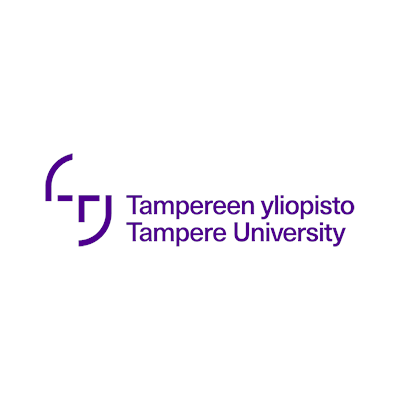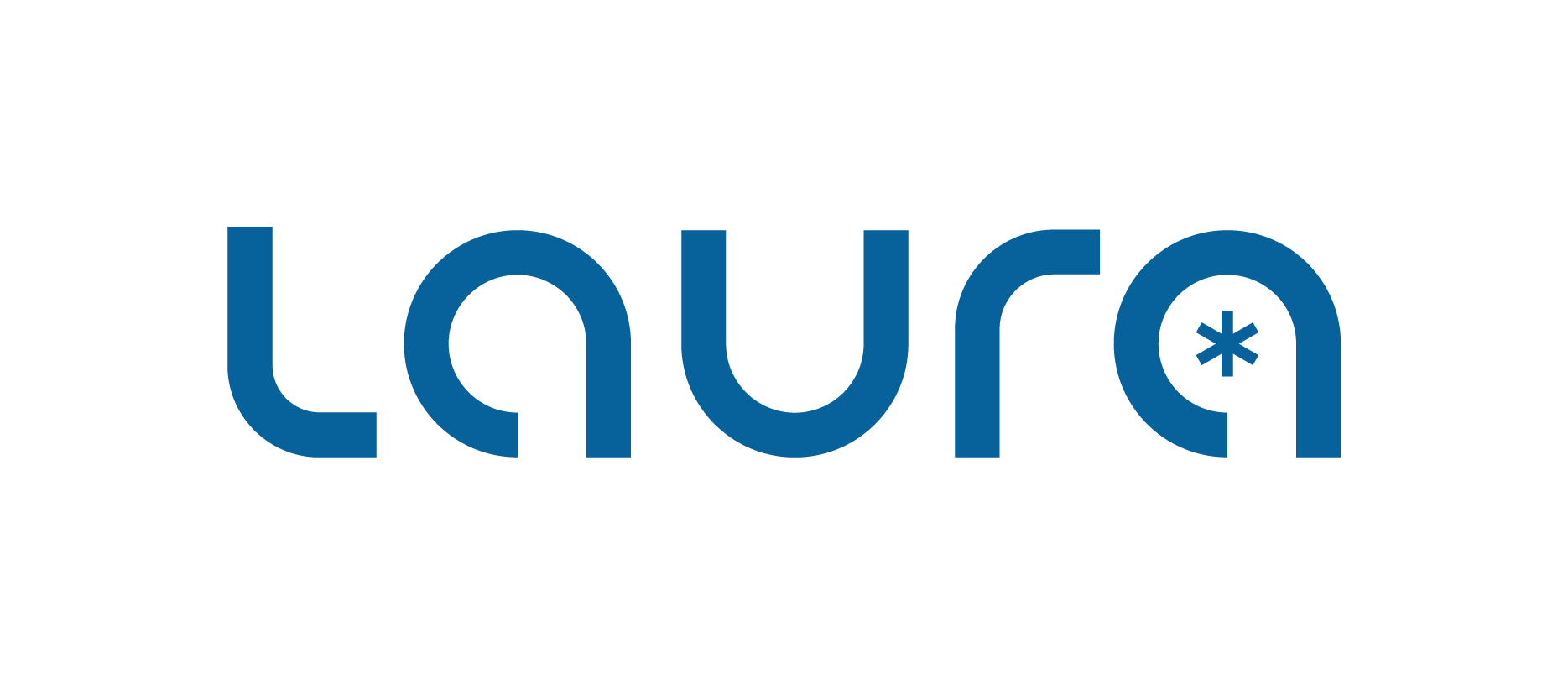Doctoral Researcher (Optical spectroscopy of organic and hybrid electronic materials) / Väitöskirjatutkija (Elektronisten orgaanisien ja hybridimateriaalien optinen spektroskopia)

Tampere University and Tampere University of Applied Sciences create a unique environment for multidisciplinary, inspirational and high-impact research and education. Our university community has its competitive edges in technology, health and society. www.tuni.fi/en
The Spectroscopy and Light-Active Materials (SLAM) group is looking for a doctoral researcher for PhD work on optical spectroscopy of organic and hybrid electronic materials. The SLAM group’s main focus is on the fields of time-resolved optical spectroscopy, spectroelectrochemistry of organic electronic devices, and high-efficiency light-emitting materials. We are a part of the Chemistry & Advanced Materials (CAM) research cluster, the PREIN Flagship on Photonics Research and Innovation, and the LIBER Centre of Excellence.
Job description
Charge carrier dynamics and especially carrier trapping largely dictate the performance of electronic devices, such as transistors and solar cells. Transient absorption spectroscopy (TAS) and time-resolved photoluminescence (TRPL) enable the determination of charge carrier dynamics from the femtosecond to second timescales, encompassing the whole charge carrier lifetime from generation to trap induced recombination. On the other hand, sensitive absorption measurements using photothermal deflection spectroscopy (PDS) allow one to characterize trap state density and energetics as well as to estimate the amount of energetic disorder in a system. The main goal is to characterize the trapping and disorder in polymer and perovskite inspired semiconductor materials using in operando PDS and comparing the charge carrier dynamics using TAS and TRPL. Polymer semiconductors are often used in organic electrochemical transistors and for neuromorphic devices, whereas perovskite inspired materials promise a breakthrough in indoor photovoltaic devices. The tasks will include electronic device fabrication, materials characterization, building optical measurement devices, and preparing software for data acquisition.
The exact direction of the research is determined by the project tasks. However, both the research focus and responsibilities can be customized to align with the candidate's skills, experience, and interests. The position also involves collaboration within a multidisciplinary team to push the boundaries of current knowledge and technology in this field, publishing research findings in reputable journals, presenting at international conferences, and a possibility for mobility to a German or Swedish partner during the research stages for collaborative work.
Requirements
Applicants are expected to meet the following criteria:
Educational Qualification: Must hold a master’s degree in chemistry, electronics, physics, photonics, or a related field at the time of application.
Academic Background: A solid background in chemistry or photonics is required. Additional knowledge in organic electronics and materials characterization is highly desirable.
Technical Proficiency: Existing skills in Labview or Python-based programming are highly desirable. Candidates should be willing to further develop their programming skills.
Language Skills: Proficiency in both written and spoken English is required. Applicants should possess excellent communication and interpersonal skills. Proficiency in Finnish is not required.
Working Style: Ability to work both independently and as part of a team. Candidates should demonstrate a balance of autonomy and collaborative skills.
Please note that before commencing the position, the selected candidate must apply for a study right within the doctoral program at Tampere University, unless they already have one. Please visit the admissions webpage https://www.tuni.fi/en/study-with-us/programmes/doctoral-programmes for more information on eligibility requirements.
Tampere University is a unique, multidisciplinary, forward-thinking, and evolving community. Our values are openness, critical thinking, diversity, learner-centeredness, courage, erudition, and responsibility. We hope you can embrace these values and promote them in your role.
We offer
The position will be filled for a fixed-term period of four (2 + 2) years, commencing in September 2024 or as soon after that as possible. A trial period of six (6) months applies to all our new employees.
The salary will be based on both the job requirements and the employee's personal performance in accordance with the Finnish University Salary System. According to the criteria applied to teaching and research staff, the position of a doctoral researcher is placed on level 2-4 of the job requirements scale. A typical starting salary for a Doctoral Researcher is approximately 2650 EUR per month. The salary increases based on the progress of doctoral studies to up to 3650 EUR per month.
Tampere University is strongly committed to the highest level of scientific research and the provision of high-quality doctoral education. The unit and the faculty support the doctoral students by offering training and peer support. The University offers a wide range of staff benefits, such as occupational health care, flexible working hours, excellent sports facilities on campus and several on-campus restaurants and cafés with staff discounts. Please read more about working at Tampere University.
Tampere is the largest inland city in Finland and is considered a major academic hub in the Nordic countries. The region is home to a vibrant, knowledge-intensive entrepreneurial community, and the city is an industrial powerhouse with a rich cultural scene and a reputation as a centre of Finland's information society. Additionally, Finland is known for being one of the most stable, free, and safe countries in the world, based on various ratings by prominent agencies. Tampere is surrounded by stunning nature, with forests and lakes offering countless opportunities for easy-to-access outdoor adventures and refreshment throughout the year.
Read more about Finland and Tampere:
- Visit Finland
- This is Finland
- Ministry of Economic Affairs and Employment: Welcome to Finland
- Visit Tampere
How to apply
Please submit your application through our online recruitment system (link below). The closing date for applications is 16 September 2024 (at 23:59 EEST / UTC +3).
Please write your application and all accompanying documentation (listed below) in English and combine them into a single PDF file named “LastnameFirstname.pdf”. Please note that other file formats will not be accepted.
A cover letter (maximum length 2 pages) explaining your background, motivation for pursuing a research career, rationale for applying for the position, and reasons you are particularly suited for this role.
Curriculum vitae, including:
- Personal details and the date of the CV.
- Degrees (including all degrees you have, along with their dates (month/year)).
- Other education and expertise.
- Language skills.
- Previous work experience.
- Research output (list of publications, patents, etc.), if any.
- Other key academic and non-academic merits.
- MATLAB, Labview, and Python skills (with your own evaluation of your level, from low to excellent) – include links to any open-source code you have on Github or other repositories, if applicable.
- The contact details of up to two referees. References will not be contacted during the initial review process.
Degree certificates and supplements:
Bachelor’s and master's degrees and any other relevant diplomas in their original language. Provide an official translation if the original language is not English.
Transcripts of records for bachelor’s, master’s, and other completed programs in their original language. Provide an official translation if the original language is not English.
A certificate of English language proficiency or other means to prove your English language skills.
Other relevant documents that support your application (optional).
Please follow the above instructions carefully. Incomplete or non-compliant applications will not be accepted for evaluation.
For more information, please contact:
Assistant Professor Tero-Petri Ruoko, tero-petri.ruoko(at)tuni.fi
Faculty of Engineering and Natural Sciences | Chemistry & Advanced Materials
https://www.tuni.fi/en/research/spectroscopy-and-light-active-materials-slam
*******
Tampereen yliopisto ja Tampereen ammattikorkeakoulu muodostavat korkeakouluyhteisön, joka uskoo ihmiseen ja tieteeseen. Tekniikan, terveyden ja yhteiskunnan huippuosaajat muuttavat maailmaa Suomen toiseksi suurimmassa monitieteisessä ja innostavassa tutkimus- ja oppimisympäristössä. www.tuni.fi
Spektroskopia ja valoaktiiviset materiaalit (SLAM) tutkimusryhmä etsii väitöskirjakoulutettavaa työskentelemään valoherkkien elektronisten aktuaattorien parissa. SLAM ryhmän keskittyy pääasiassa aikaerotteiseen spektroskopiaan, orgaanisten elektronisten laitteiden spektrosähkökemiaan ja tehokkaisiin valoa emittoiviin materiaaleihin. SLAM-ryhmä on osa kemia ja uudet materiaalit tutkimusyhteisöä, PREIN fotoniikan lippulaivaa ja LIBER Suomen Akatemian huippuyksikköä.
Työn kuvaus:
Varauksenkuljettajien ominaisuudet ja erityisesti niiden ansatilat määrittävät suurelta osin elektronisten laitteiden, kuten transistorien ja aurinkokennojen, suorituskyvyn. Aikaerotteiset absorptio- (TAS) ja emissiospektroskopia (TRPL) mahdollistavat varauksenkuljettajien dynamiikan määrittämisen femtosekunneista sekuntiluokkaan, kattaen varauksenkuljettajien elinkaaren virityksestä rekombinaatioon asti. Toisaalta herkät absorptiomittaukset fototermisen taipumaspektroskopian (PDS) avulla mahdollistavat varausten ansatilojen tiheyden ja energiatasojen määrityksen sekä järjestelmän energeettisen epäjärjestyksen määrän arvioinnin. Tutkimuksen tavoitteena on karakterisoida ansatilojen ja epäjärjestyksen vaikutukset polymeeri- ja perovskiitti-inspiroiduissa puolijohdemateriaaleissa käyttäen PDS:ää ja vertaamalla näitä varauksenkuljettajien dynamiikkaan käyttäen TAS:ia ja TRPL:ää. Polymeeripuolijohteita käytetään usein orgaanisissa sähkökemiallisissa transistoreissa ja neuromorfisissa laitteissa, kun taas perovskiitti-inspiroidut materiaalit ovat lupaavia sisätiloissa käytettäviin aurinkokennoihin. Tehtäviin kuuluu elektronisten laitteiden valmistus, materiaalien karakterisointi, optisten mittalaitteiden rakentaminen ja ohjelmiston valmistelu datan hankintaan.
Tutkimuksen tarkka suunta määräytyy projektin tehtävien mukaan. Sekä tutkimuksen painopiste että vastuut voidaan kuitenkin räätälöidä vastaamaan ehdokkaan taitoja, kokemusta ja kiinnostuksen kohteita. Tehtävään sisältyy myös yhteistyötä monitieteisessä tiimissä alan nykytiedon ja teknologian rajojen työntämiseksi, tutkimustulosten julkaisemista arvostetuissa aikakauslehdissä, esittelyä kansainvälisissä konferensseissa ja mahdollisesti muutaman kuukauden liikkuvuus ruotsalaisen kumppanin luo tutkimusvaiheiden aikana.
Hakuohjeet
Tarkemmat tehtävänkuvaukset ja tehtävään liittyvät tutkimusprojektit ovat esitelty ilmoituksen englanninkielisessä osassa.
Jätäthän hakemuksesi yliopiston sähköisellä hakulomakkeella (linkki löytyy tämän ilmoituksen alta). Hakuaika tehtävään päättyy 16.09.2024 klo 23.59.
Lisätiedot:
Apulaisprofessori Tero-Petri Ruoko, tero-petri.ruoko(at)tuni.fi
Faculty of Engineering and Natural Sciences | Chemistry & Advanced Materials
https://www.tuni.fi/fi/tutkimus/spectroscopy-and-light-active-materials-slam




